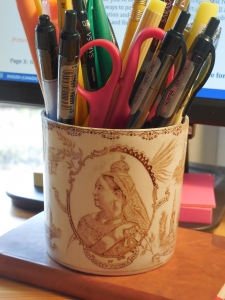Questions to Guide the Start of a Writing Project
 Have you got a nonfiction book in mind? Perhaps it’s a biography, family history or memoir? Here’s some questions to consider at the outset—and to review again as you work on the first draft:
Have you got a nonfiction book in mind? Perhaps it’s a biography, family history or memoir? Here’s some questions to consider at the outset—and to review again as you work on the first draft:
Who will your audience be? What content, style of writing and presentation interests them?
Will it be a traditional book, blog, e-book, commercial book, self-published book, photo book, recipe-based book?
Do you want to pitch your manuscript to a publisher? (Unless it’s a guidebook, you need a “universal” theme that speaks to a broad cross-section of people, polished writing, some strong narrative hooks, conflicts, tension and character growth.)
The Premise is How You Describe the Story, in Shorthand
Can you write a compelling premise—what the story is about—in four or five sentences? And how about the theme of the book? Don’t force the latter. You need to know the premise from the start, but the theme will emerge as you write. (This is the core or the heart of the narrative, something you can express in a few words. The theme of Charles Dickens’ The Christmas Carol, for example, can is: the redemption of a man who lost his humanity.)
Will you write a short manuscript, or is this a book length project of about 60,000 words? (If your intention is a short piece, give yourself a specific subject: a slice of a life or one event.)
Is the bulk of the research done, and you’re now the subject expert? Have you compiled a chronological list to distill that information into a short form? (See the post: Compile a Chronological List To Make Sense of Your Subject…)
Do you need the structure of an outline, or do you want to let the story unfold organically as you write? Perhaps a simple list or a storyboard with post it notes for various subjects and/or scenes will help to organize your thoughts?
Do you know your main character(s) well enough to make them come alive on the page? Perhaps a character sketch would be helpful. Describe how they looked, their personality, mannerisms, habits, accomplishments.
Are There Characters the Reader Can Connect With?
Do you know your character’s goals? What was he or she trying to achieve?
What were their conflicts? (Conflicts are as important to nonfiction as they are to fiction!) And how about tension, can you build some of that in too?
Is there an antagonist (which can be a place, person, environment/landscape, or inner conflict)?
And let the writing begin!
